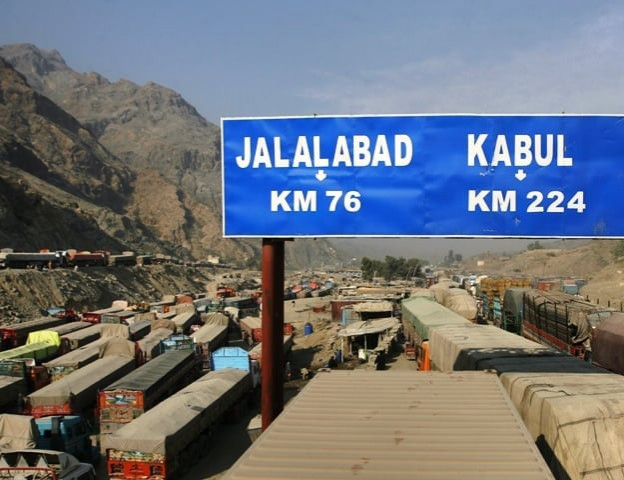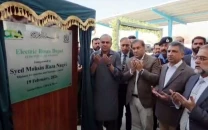Pakistan arms ban no bar to NATO convoys: Analysts
Political analyst describes bar on transporting deadly weapons as "a gesture to address public opinion".

Islamabad stopped NATO supplies travelling overland from its southern Karachi port to Afghanistan in November amid public outrage after 24 Pakistani soldiers were killed in a US air strike on a border post.
Western officials were keen for Pakistan to commit to reopening the supply lines to landlocked Afghanistan before a NATO summit in Chicago next month.
A new framework for engaging with the US approved by Pakistani lawmakers late on Thursday was silent on the resumption of NATO convoys but said Pakistani soil must not be used to transport arms or ammunition to Afghanistan.
Analysts said this condition - missing from an earlier draft of the framework - would not hinder the reopening of NATO routes, as the convoys were mainly used to carry "non-lethal" supplies.
"There is no past evidence that weapons were transported via Pakistan ground routes," Pakistani political analyst Hasan Askari told AFP.
"The US has other options to send weapons to Afghanistan - they can use the European channel, through Turkey and central Asia."
Brigadier General Carsten Jacobson, spokesman for the NATO force in Afghanistan, told AFP he would welcome the Pakistan route being reopened, but the operation was not dependent on it.
Political analyst and author Imtiaz Gul described the bar on transporting deadly weapons as "a gesture to address public opinion".
Pakistan-US relations nosedived in 2011, first over a CIA contractor who shot dead two Pakistanis in Lahore, then over the discovery of Osama bin Laden in Abbottabad and finally over the November air strikes.
Washington and Islamabad have taken steps recently to patch up their fractious relationship.
President Barack Obama met Pakistan's Prime Minister Yousaf Raza Gilani on the sidelines of a summit in Seoul last month and last week US Deputy Secretary of State Tom Nides held talks with Gilani and other ministers in Islamabad.
But the Pakistani public is deeply uneasy about the country's cooperation with the United States in the "war on terror" and retired Brigadier Saad Muhammad, a defence analyst, said significant political obstacles to reopening the supply lines remain.
"Parliament members had received death threats and resumption will be a loss of face for the ruling party," Muhammad, who served as Pakistani defence attache in Kabul, told AFP.
"There will be public reaction. Now it becomes a real problem for the Pakistan government to resume the supply."
"Religious and right-wing political parties were blaming the government for its pro-US policies and that was the reason that passing of this resolution took more time in the parliament," said political analyst Askari.
"Religious and right-wing political parties could use it against the ruling Pakistan People's Party in the upcoming elections."
The "no arms or ammunition" condition has cut no ice with some hardline groups opposed to NATO convoys.
The Difa-e-Pakistan Council, an alliance of right-wing, religious political parties and extremist groups who have campaigned against restarting the supply routes, has vowed to block convoys no matter what they carry.
"Americans used to supply arms and weapons using Pakistani routes and we fear that again they will start this practice taking the cover of (non-lethal supplies)," Israr-Ullah, a spokesman for the coalition, told AFP.
"It was a pre-planned decision and the text of this resolution was written by Americans."
It is also election year in the United States, and domestic political concerns may play a role in how Washington responds to another key demand made by the Pakistani parliament: an apology for the November air strikes.
The White House has so far voiced regret for the deaths but stopped short of apologising, and with Obama's likely Republican opponent Mitt Romney criticising the president for "apologising for America" it remains to be seen whether he will take the extra step.



















COMMENTS
Comments are moderated and generally will be posted if they are on-topic and not abusive.
For more information, please see our Comments FAQ